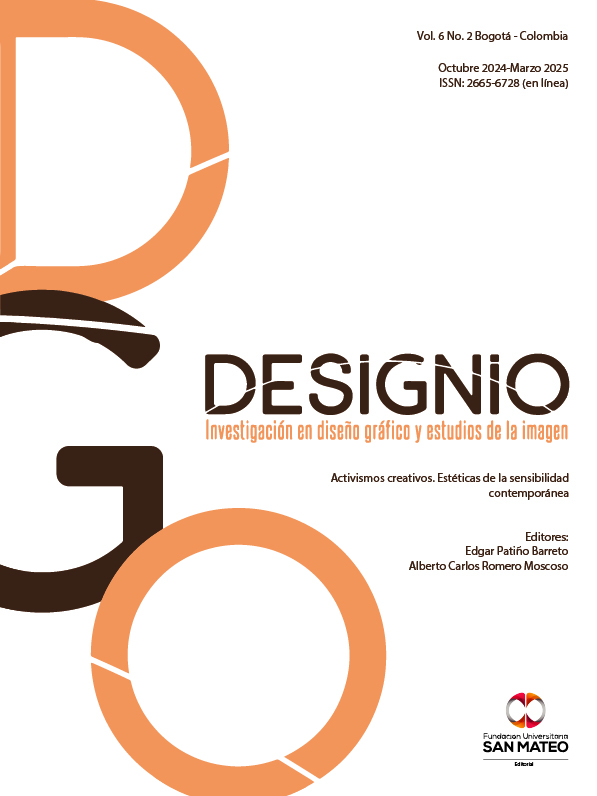Integrations in Latin American Social Research An Approach to the Study of Restorative Leisure from Festive Community Activism
Main Article Content
Abstract
The concept of restorative leisure, proposed in an unprecedented way by the present research, emerges as an analytical category in the framework of research in Latin American leisure studies, focused on the recognition of restorative activisms, which emerge in contexts of inequality and structural injustice, both in rural and urban environments in Colombia. The festive expressions of communities subjected to victimizing events become community processes that seek to strengthen the social fabric and promote an alternative justice centered on the integral care of life. This study, with a qualitative approach and exploratory approach, addresses the phenomenon of activism that occurs in the festivities in Colombian communities, recognizing their cultural roots and their manifestations of resilience and adaptation. It oriented the active participation of the communities and the systematization of experiences, which, as integrated methods, value the diversity of local knowledge. It implemented creation laboratories as spaces for participatory research, facilitating the development of festive expressions that reflect different forms of community resilience so that the restorative leisure is based on the practices and experiences of the human groups determined by the research.
Downloads
Article Details

This work is licensed under a Creative Commons Attribution-NonCommercial-NoDerivatives 4.0 International License.
References
Barragán, D. y Torres, A. (2017). La sistematización como investigación interpretativa crítica. Editorial El Búho.
Bravo, E. (2020). Revisión sistemática del concepto de laboratorios vivos. Dimensión Empresarial, 18(1),78-104. https://doi.org/10.15665/dem.v18i(1).2018
Christians, C. (2012). La ética y la política en la investigación cualitativa. En N. Denzin, N. & Y. Lincoln. (Coords.), El campo de la investigación cualitativa. Manual de investigación cualitativa (Vol. 1, pp. 283-331). Gedisa.
Corbin, J. y Strauss, A. (2015). Basics of Qualitative Research. Techniques and Procedures for Developing Grounded Theory (4ª ed.). Sage.
Cuenca, M. (2001). Fiesta y juego en el desarrollo humano en M. Csikszentmihalyi et al., Ocio y desarrollo. Potencialidades del ocio para el desarrollo humano (pp. 55-104). Universidad de Deusto.
Denzin, N. y Lincoln, Y. (2012). El campo de la investigación cualitativa (1ª ed.). Gedisa.
Fine, M. y Weis, L. (2012). Estudios composicionales, en dos partes. Sobre la teorización y el análisis críticos acerca de la (in)justicia social. En N. Deniz & Y. Lincoln (Coords.), El campo de la investigación cualitativa: manual de investigación cualitativa. (Vol.1, pp. 155-189). Gedisa.
Forero, A. y Lazcano, I. (2022). Aplicaciones, extensiones y transformaciones del ocio serio en actividades restaurativas: casos urbanos y rurales en Colombia. En A. Madariaga y M. Rodrigo (Dirs.), Ocio saludable y construcción de ciudadanía (pp. 67-80). Thomson Reuters Aranzadi.
Forero, A. (2023). El ocio restaurativo en la reparación colectiva: una aproximación emergente desde los laboratorios vivos de creación tesis [Tesis doctoral, Universidad de Deusto].
Gomes, C. y Elizalde, R. (2012). Horizontes latinoamericanos del ocio. UFMG.
Greenwood, D. y Levin, M. (2012). La reforma de las ciencias sociales y de las universidades a través de la investigación-acción. En N. Deniz & Y. Lincoln (Coords.), El campo de la investigación cualitativa: manual de investigación cualitativa. (Vol.1, pp. 117-154). Gedisa.
Mejía, M. (2007). La sistematización como proceso investigativo o la búsqueda de la episteme de las prácticas. Revista Internacional Magisterio, (33).
Richter, F y Cuenca, J. (2018). Huertos de ocio y vida comunitaria. La agricultura urbana como experiencia de participación ciudadana. En A. Madariaga y A. Ponce de León (Eds.), Ocio y participación social en entornos comunitarios (pp. 189-214). Universidad de la Rioja.
Stebbins, R. (2017). Serious Leisure: A Perspective for Our Time (2a ed). Routledge.
Tuhiwai, L. (2012). Caminando sobre terreno resbaladizo. La investigación de los pueblos nativos en la era de la incertidumbre. En N. Denzin y Y. Lincoln (Coords.), El campo de la investigación cualitativa: manual de investigación cualitativa. (Vol.1, pp. 190-230). Gedisa.
Vasilachis, I. (2012). De las nuevas formas de conocer y de producir conocimiento. En N. Denzin, N. y Y. Lincoln (Coords.), El campo de la investigación cualitativa: manual de investigación cualitativa. (Vol.1, pp. 11-22). Gedisa.
Widmer, M. y Ellis G. (2000). El modelo aristotélico de la vida buena: integración de los valores en la prestación de servicios de ocio terapéutico. En S. Gorbeña (Ed.), Modelos de intervención en ocio terapéutico (pp. 89-108). Universidad de Deusto.

